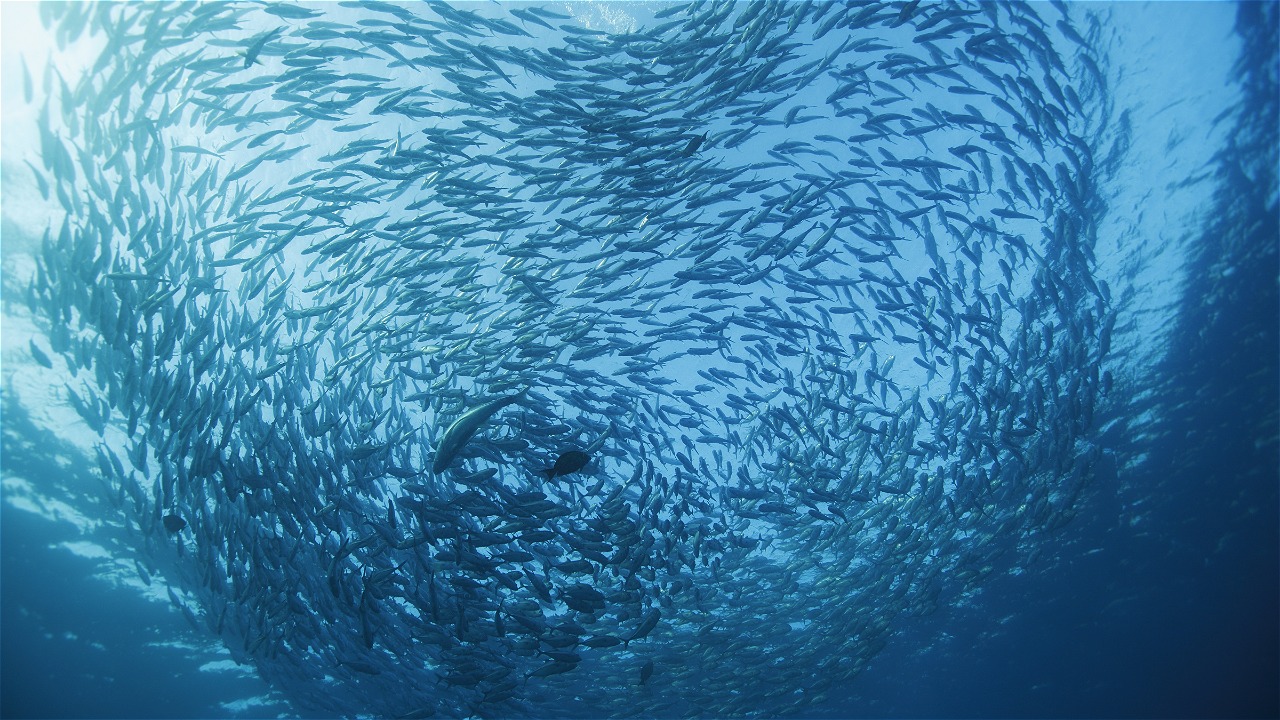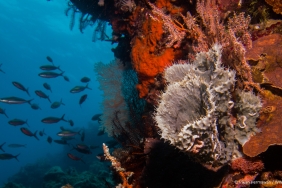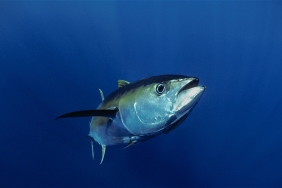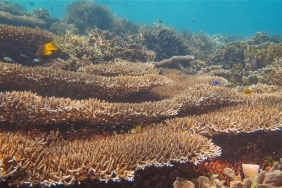A RESOLUTION TO BUILD A LEARNING CENTER FOR ECOSYSTEM-BASED FISHERIES MANAGEMENT IN MALUKU
By: Barnabas Wurlianty (EAFM Liasion Coordinator Inner Banda Arc Subseascape, WWF-Indonesia)
The year 2016 did not fly by in Maluku, Indonesia's eastern gateway. At the end of the year (23/11), the Hall of the Marine and Fisheries Service (DKP) of Maluku Province was packed with at least 60 representatives of various stakeholders; government, NGOs, fisheries actors, fishing groups, and LIPI. That day, a discussion was held for the development of a Learning Center for the implementation of ecosystem-based fisheries management (EAFM) in Maluku.
This discussion aims to socialize EAFM and fisheries institutions, explore inputs to support fisheries institutions, and build a mutual agreement to support ecosystem-based fisheries management in the Inner Banda Arcini seascape.
To dissect the importance of the EAFM Learning Center, the best resource persons were presented in the discussion. Names such as Dr. Toni Ruchimat (Director of SDI, Ministry of Marine Affairs and Fisheries RI), Prof. Detrich Bengen (Bogor Agricultural University), Dr. Ir. Romelus Far Far, M.Si. (Head of DKP Maluku Province), Wawan Ridwan (Director of Coral Triangle, WWF-Indonesia), with Prof. Dr. Aleks Retraubun as moderator.
Prof. Detriech Bangen emphasized that the Learning Center is important within the framework of the Assessment and Management of Coastal Areas and Small Islands (WP3K). The learning center in fisheries management was built with the target of improving WP3K management performance in an integrated manner according to the code of ethics of sustainable development and supporting responsible marine and fisheries development; increasing the added value of marine and fisheries products, income, and welfare of coastal communities.
"It is time for us to leave commodity-based fisheries management, and switch to ecosystem-based management," said Prof. Aleks Retraubun. "With the direction of the experts present today, we discuss what we should do to start ecosystem-based sustainable fisheries management in Maluku," he continued.
M. Ridha Hakim (Small Islands and Governance Program Leader, WWF-Indonesia) conveyed the points that became the purpose of establishing a Learning Center.
"Through the Learning Center, we conduct studies, research, education, training, and information dissemination in supporting the sustainable use and development of the marine and fisheries sector. The Learning Center will play an active role in providing an overview of policy-making and the development of coastal community empowerment models," he said.
The focus of the Learning Center activities itself is divided into four, namely sustainable fisheries, Marine Protected Areas and Small Islands, responsible marine tourism, and social, economic, and institutional aspects. "LC-EAFM Maluku will be established with education function, training function, and development function," he continued.
To realize this LC-EAFM, of course, further concrete steps are needed. "There needs to be network development and learning forum for EAFM implementation, to build capacity building and common understanding of EAFM," said Dr. James Abrahamsz (Pattimura University EAFM Learning Center Coordinator)
With its long history, LC-EAFM Pattimura University was asked to be the coordinator in initiating LC and EAFM Forum in Maluku in the future. The EAFM Learning Forum and the preparation of a joint work plan in 2017 - are two things we look forward to next from the discussion agreement that day.
The concept of EAFM that has been fully known by all levels of stakeholders that day - and the joint agreement to implement EAFM through the Learning Center in Maluku, are two good news to start 2017 and oversee important resolutions for better fisheries management here - the eastern gate of Indonesia.





